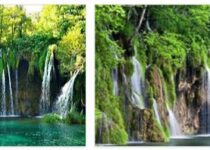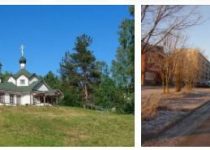Bulgaria Culture and Literature
CULTURE
Due to its geographical position, Bulgaria has constantly acted as a bridge between the Western, Balkan and Orthodox world, and the Eastern, Islamic and, once, Ottoman world. Even if the Bulgarian culture has always been considered similar to the Serbian world and to the Russian and Balkan “knowledge”, it still has influences from all the minorities who have crossed the territory, or who have settled there over the centuries, from Rom to the Jewish communities, from the Turks to the oriental merchants who came from even further away. Even Bulgaria is not exempt from the nationalism that overwhelmed the Balkan and Eastern European region in the last decade of the twentieth century; however, in the country it has never taken on the bright tones that sadly characterized other former socialist states since the 1990s. Rather isolated on the international cultural scene, Bulgaria remains in some respects little known, but worthy of being better known and appreciated, not only for the survival of a peasant and rural world that has rapidly urbanized elsewhere, but also for its refined literary production. of the late twentieth century. University locations are Sofia, Varna and Plovdid.Nine UNESCO Bulgarian sites; in the group stand out the medieval church of Boyana, the rock complex of churches and monasteries of Ivanovo and the Thracian tombs of Kazanlak and Sveshtari.
LITERATURE
According to Aparentingblog, Medieval Bulgarian literature developed in two distinct periods. During the first Bulgarian empire (IX-XI centuries) the brothers Cyril and Methodius and their disciples were persecuted and expelled from Moravia; treatise writers such as Clement of Ohrid (Kliment Ochridski), Constantine bishop of Preslav (Konstantin Preslavski), Giovanni Esarca (Ioan Ekzarch), the monk Chrabǎr and the presbyter Cosma (Kozma). From the time of the second empire (1186-1393) the names of Eutimio (Eftimaj Tǎrnovski), patriarch of Tǎrnovo, promoter of a puristic movement, and G. Camblak have been handed down. During the centuries of Turkish domination (1393-1878) no forms of learned literature were cultivated in Bulgaria and only towards the end of the eighteenth century the monk Paisij of Chilendar (Paisij Chilendarski), with his Slavic-Bulgarian history (1762), spread yeasts of revival of the national spirit, which was soon exalted by Bishop Sofronij of Vraca (Sofronij Vračanski) and by the “awakeners” Petar Beron, Neofit Bozveli, Neofit Rilski, Vasil Aprilov, who, elevating the people’s speech to the dignity of literary language, created, at the beginning of the century. XIX, the conditions for the subsequent artistic flowering. The authors of the literary revival were the prose writers Ljuben Karavelov and Vasil Drumev and the poets Georgi Rakovski, Petko Slavejkov and Christo Botev. The greatest exponent of Bulgarian literature in the period immediately following independence (in 1878) was Ivan Vazov, who recalled the insurrectional struggles in the novel Under the yoke and developed historical motifs or reasons derived from the observation of everyday life in stories, lyrics, theatrical works. Konstantin Veličkov, poet and prose writer, memorialist Vasil Stojanov, populists Todor Genčov Vlajkov belonged to his generationand Michalaki Georgiev (1852-1916), satirist Stojan Michajlovski (1856-1927) and Aleko Konstantinov, witty humorist. An overcoming of utilitarian purposes and patriotic intonations characterized, between the end of the century. XIX and the beginning of the XX, the work of Petko Todorov and Penčo Slavejkov who introduced neo-romantic and modernistic motifs. The prose of the early twentieth century, cultivated by Canko Cerkovski Bakalov, Anton Strašimirov, Iordan Jovkov and Elin Pelin, fused realistic traditions with modernist innovations, turning their gaze to the conditions of contemporary life in the countryside and cities; meanwhile the horizon of poetry was wider, which oscillated between different themes under the influence of Kiril Christov, who sang the joys of life and exalted great individual enterprises, and of Peju Javorov, who expressed the contrast between ideals and demands of practical existence; Bulgarian modernism was born to which the poets Dimčo Debeljanov, Todor Trajanov (1882-1945) and Nikolaj Liliev belonged. Georgi Rajčev (1882-1947) and Nikola Rajmov stood out among the writers of this period. Social reasons were dealt with by the fine stylist Emanuil Pop-Dimitrov (1885-1943), by the opera Elisaveta Bagrjana, by the communists Christo Jasenov (1889-1925), Geo Milev, author of the incisive September poem , Hristo Smirnenski and Nikola Vapcarov, cantor of the social revolution and a new society founded on technical advances. After the Second World War the novel experienced a particular flowering with the powerful cycles of Emjlian Stanev (1907-1979), Georgi Karaslavov, Dimitǎr Dimov, Dimitǎr Talev who, returning to the realistic vein, revive the anxieties and struggles of the pre-revolutionary period in large frescoes. The historical novel, which refers to the past of the Bulgarian people, acquires particular favor, drawing on folklore, medieval painting, chronicles and folk tales. Anton Dončev and Stanev himself, who died in 1979, excel in this genre, whose legacy will be collected, among others, by Stefan Dičev. Other prose writers such as Konstantin Konstantinov, Pavel Vežinov, Nikolaj Rajnov, Andrej Guljaški, Kamen Kalčev and Ivaljo Petrov prefer to dwell on a problem linked to the themes of modern life, urbanization, the relationship between individual ethics and great revolutionary transformations. They occupy a place apart, Nikolaj Hajtov and Jordan Radičkov, considered by many to be the greatest Bulgarian narrator and playwright, for his fantastic and ironic vein, with which he evoked a peasant world full of talking animals and bewildered and grotesque human beings; his Noah’s Ark (1988), a bitter meditation on the destiny of man resolved in images of extraordinary symbolic efficacy, can be considered one of the best books of recent years. Other genres traveled by contemporary Bulgarian writers are humor and science fiction, in which, respectively, K. Damnjanov, Iva Kulekov (b.1951), author of bitter and grotesque aphorisms on the country’s events, R. Ralin, and Liuben Dilov, a true protagonist in the fantastic-futurological trend. In the poem we must remember the lively agitating verses of Penju Penev and the more meditated lyric of Ljubomir Levčev (b.1935), Vladimir Bašev, Pavel Matev (1924-2006), and above all Blaga Dimitrova (1922-2003), poet and essayist. Of the younger generation, The valley of shoes (1991), Valeri Petrov, Nikolaj Kǎnčev and Mirjana Baševa (b.1947). Among the leading figures of the Bulgarian culture of the twentieth century, although she has long since moved to France and writes in French, the scholar and writer Julia Kristeva (b.1941), semiologist and philosopher close to the postmodernism of Jacques Derrida, author of novels like The Samurai and A Beheaded Woman. Finally, the writer of Jewish origin Elias Canetti is also of Bulgarian birth (1905-1994), Nobel Prize for literature in 1981. Finally, a name deserves to be mentioned among the authors who made their debut at a time when socialist Bulgaria was in decline, the poet Georgi Gospodinov (b. 1968), who made his debut with the collections Lapidarium (1992) and The cherry tree of a people (1996), also narrator with Natural Roman (1999).



